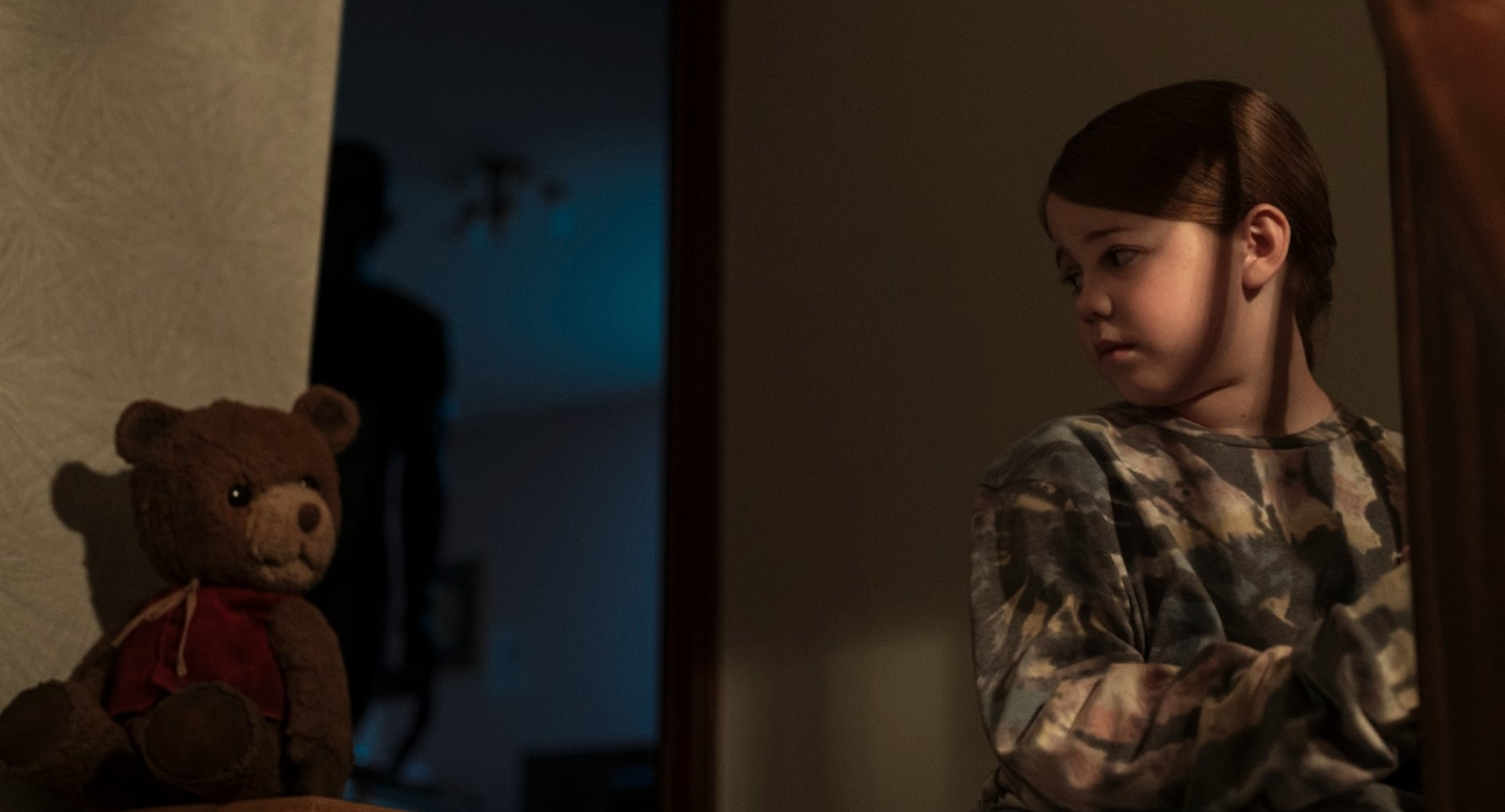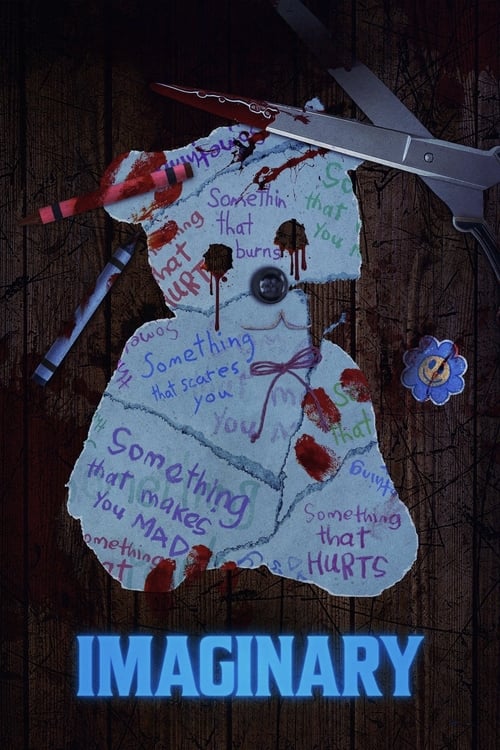Imaginary – Film Review
Published March 9, 2024

When it comes to supernatural horror, the concept of childhood fears manifesting into tangible horrors in adulthood presents an avenue ripe for chilling narratives and intense psychological exploration. It’s a disappointment, then, that Jeff Wadlow‘s Imaginary fails to capitalize on its promising premise, delivering a film that feels underdeveloped and unsatisfying.
The film centers around Jessica (played by DeWanda Wise), who relocates to her childhood home with her stepdaughters, Alice (Pyper Braun) and Taylor (Taegen Burns), and her husband, Max (Tom Payne). Among the relics of her past, Jessica discovers Chauncey, a stuffed bear that was once her confidante. What starts as a nostalgic find quickly spirals into a nightmare as Chauncey is revealed to harbor a sinister connection to Jessica’s childhood and begins to terrorize the family.
On paper, the concept has the potential to delve into the psychological impacts of childhood traumas and the way they shape our realities as adults. Unfortunately, the execution lacks depth and coherence, rendering the film more frustrating than frightening.
One of the primary issues with Imaginary lies in its character development, or rather the lack thereof. Jessica, intended as the protagonist, is surprisingly flat and unengaging. DeWanda Wise, despite her talents, is given little material to work with, resulting in a performance that feels disconnected from the high stakes purported by the narrative. This emotional detachment pervades the entire cast, with none of the relationships or interactions feeling genuinely impactful or believable.
Alice and Taylor, the children caught in the crossfire of Chauncey’s wrath, are particularly underserved by the script. Rather than offering a nuanced look at their terror or their bond in the face of adversity, the film opts for shallow depictions that leave the audience indifferent to their fate. This is a grave misstep for a genre that often relies on strong character engagement to amplify its scares.
Tom Payne’s portrayal of Max is equally forgettable, with the character’s background as a musician adding little to the story or the family dynamic. This is symptomatic of the film’s broader issue with details – there are many, yet few seem to matter or contribute to the overall narrative or atmosphere.
Perhaps most disappointing is the handling of the film’s antagonist, Chauncey. The idea of a childhood toy turned malevolent could have provided a unique and deeply unsettling antagonist. Instead, the film falls into the trap of relying on cliched horror tropes and predictable jump scares that fail to elicit genuine terror or intrigue. The backstory of Chauncey and its connection to Jessica’s past is muddled and unconvincing, lacking the clarity and emotional resonance needed to elevate the premise beyond its surface level.
The production elements of Imaginary do little to salvage the experience. The cinematography and production design, while competent, do nothing to enhance the mood or tension of the film. They feel remarkably generic, failing to utilize the visual medium to delve deeper into the psychological horror or the internal worlds of the characters. This is a significant missed opportunity, given the potentially rich thematic material provided by the premise.
Moreover, the film suffers from pacing issues, with a narrative structure that feels disjointed and aimless at times. Key plot points are rushed or inadequately explored, leading to a climax that feels both predictable and unearned. This lack of narrative cohesion makes the viewing experience not only underwhelming but, at times, laborious.
Director Jeff Wadlow, despite his ambition, seems unable to marry the film’s conceptual potential with its execution. Co-written by Wadlow, Greg Erb, and Jason Oremland, the screenplay needed a more rigorous development phase to refine its characters, clarify its themes, and build a more compelling narrative arc. The involvement of Jason Blum’s Blumhouse Productions, known for revitalizing the horror genre with innovative and critically acclaimed films, makes the shortcomings of Imaginary all the more baffling.
Imaginary is a supernatural horror film that squanders its intriguing premise on lackluster execution and shallow character development. Rather than offering a nuanced exploration of childhood fears and their lasting impacts, the film opts for generic scares and narrative shortcuts that leave it feeling hollow and uninspired. Despite a talented cast and the backing of a respected production house, Imaginary fails to make a meaningful impact, ultimately serving as a forgettable entry in the horror genre. For audiences seeking a genuinely chilling and thought-provoking cinematic experience, Imaginary is unlikely to satisfy.
